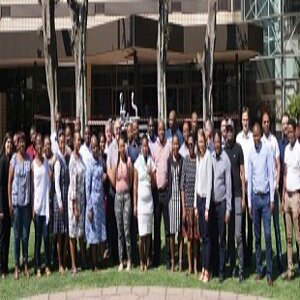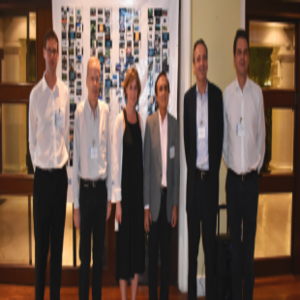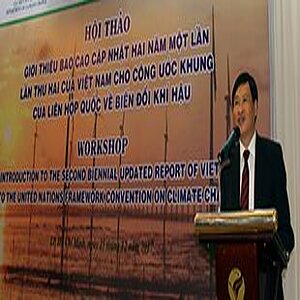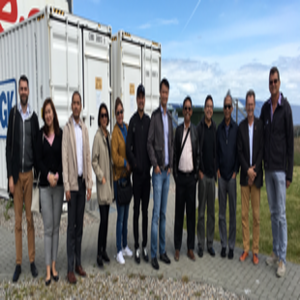Interview: Mainstreaming climate change in the Philippines
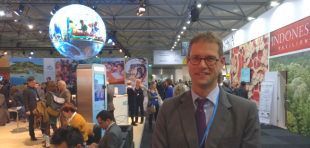
Björn Surborg speaks about the role of the Philippines’ Climate Change Commission in mainstreaming climate change and on local implementation of new policies.
Björn Surborg from Deutsche Gesellschaft für Internationale Zusammenarbeit (GIZ) GmbH is responsible for the project “Support to the Philippines in shaping and implementing the international climate regime”. During COP23, we spoke to him about approaches and bodies to mainstream climate change into the functions of the government as well as in local planning processes.
Mr. Surborg, your project aims at strengthening the Climate Change Commission (CCC) in the Philippines. Could you please explain what the CCC is and what it does?
The Climate Change Commission is directly under the President's office and was put into place a few years ago as a lead policy body. The Commission does not implement any projects on climate change but has the function to ensure the mainstreaming of climate change into the functions of the Philippine government. So we work with them. In addition to that, we work with the Housing and Land Use Regulatory Board to reach the local level on climate policy. We also work with the Department of Energy on questions of climate change mitigation. The Climate Change Commission is responsible for the overall policy where we cooperate with them.
How is this commission connected to the ministries? We often hear that it is challenging to connect ministries in their common effort for climate change mitigation and adaptation.
That is precisely the task of the commission because it does not have an implementing role. It is a commission under the President's office, so it has a high level of authority, a high level of convening power and has a seat at the table at the cabinet cluster which covers climate change adaptation, mitigation and disaster risk reduction. The Climate Change Commission is also the convener agency of the climate change working group in the Philippine Development Forum.
How did the CCC start and develop historically?
The Commission was actually set up through legislation, the Climate Change Act of 2009. An IKI project implemented by GIZ, the so-called "Support to the Climate Change Commission I" project, provided advisory services in the early years of the Commission. We currently implement the "Support to the Climate Change Commission II" project. Together with the government partners, we were looking quite carefully what kind of mandate this Commission would need to have, what it can do and what it perhaps cannot do. Important here again is: it is not an implementing body but it has a coordinating function and a policy development function and it does monitoring and evaluation of the Paris Agreement and the commitments under the current Intended Nationally Determined Contributions (INDCs) in the Philippines but in the future the NDCs.
What challenges are you currently working on?
One of our main tasks at the moment is an update of the National Climate Change Action Plan (NCCAP) for the Philippines. We do this in light of developing it as part of a National Adaptation Plan (NAP). We recognise that a National Adaptation Plan is a process. We do not see it as yet another document which needs to be there, but we do integrate a lot of the guidelines of the UNFCCC into the National Climate Change Action Plan. It is now a few years old. So we are reviewing what has happened so far and what kind of adjustments need to be made for the years to come to have effective climate change adaptation as well as mitigation. We also support the Commission on preparing the final NDC and GHG inventories through two global programmes: Information Matters and Cool Contributions to Climate Change.

Is the focus in the Philippines more on adaptation or mitigation?
The project is supporting the government on both. The priorities of the Philippine government are very clearly on climate change adaptation as mitigation is viewed by the Philippines as a function of adaptation. This is a process where the Philippines, as a country vulnerable to climate change, state clearly that adaptation is most important. Historically, the contribution of greenhouse gas emissions from the Philippines is very low. But as a middle income country with one of the highest growth rates in the region at the moment, the Philippines are aware that, while developing further and adapting to climate change, this economic development has to be done in the context of a low carbon development and they are committed to fulfilling the Paris Agreement.
Do you exchange experience with other countries?
The project itself is a bilateral project and the cooperation is very much between the implementing agency - GIZ on behalf of the German Environment Ministry (BMU) - and the Climate Change Commission and some of the other government agencies including the Department of Environment and Natural Resources. Beyond that, however, we also implemented a project called "Information Matters". This project is looking at the transparency framework for several countries and being able to do greenhouse gas inventories in partner countries. The Philippines were very active here and cooperated closely with other countries facing similar challenges. The Philippines also play a very important role in the Climate Vulnerable Forum. This is a group of almost 50 vulnerable countries where the Philippines had the chair up until 2016. Through our project we have given support to the secretariat which was implemented by a UNDP project.

Your project is located at policy level. Do you get feedback from people on the ground that people benefit from your work?
In principle, the project is about making government functions regarding climate resilience and low carbon development work better. But we have also worked with local government units through the local Housing and Land Use Regulatory Board. Through the project we have trained local government officials in developing climate-smart comprehensive land use plans. These smaller units of government are now in the process of actually implementing climate resilient land use plans. Through this mechanism, we reach a very large number of people on the ground in the Philippines. In addition, we also work through the global programme Mainstreaming Eco-System based Adaptation with local communities of practice that implement this approach.
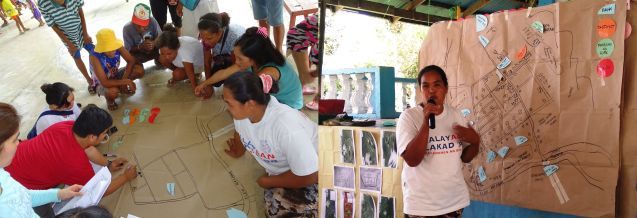
Could you describe a concrete example?
We supported an initiative, where Local Government Units received technical assistance on climate change adaptation planning through vulnerability assessments and resources valuation. The Municipality of del Carmen in Siargao Islands, Surigao del Norte was one of the pilot sites for the Climate Change Commission’s eco-town demonstration and received this kind of support. People gained a lot of knowledge and exposure from their eco-town demonstration experience and municipality was one of the first ones able to access the People’s Survival Fund or the national adaptation fund of the Philippines.
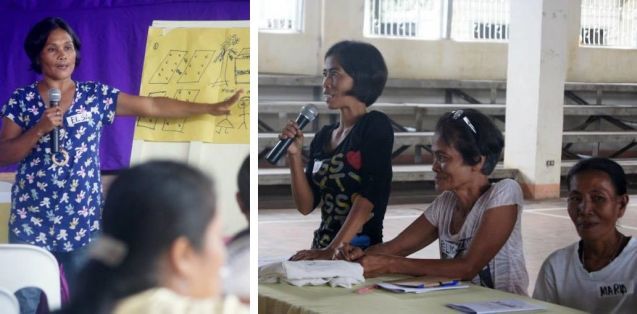
Del Carmen proposed the establishment of a Climate Field School for farmers and fisher folks. This nationally funded project will capacitate farmers and fisher folks on climate-adaptive decision-making based on weather and climate forecasts. They also partnered with a local state university to develop and carry out a training curriculum targeted to local communities on climate change adaptation, financial literacy, alternative livelihood opportunities and farming practices to address the threats to their livelihoods. This partnership will really add to the sustainability of the activities.
On the policy level, you also mentioned mitigation as playing an increasingly important role…?
We work a lot on mitigation policies. The Energy Secretary of the Philippines, together with a small delegation, has recently been in Germany and has seen a few examples of the energy transition in Germany. I think that was a very successful input, giving examples on how renewable energy can be part of your energy solution and not just something that is sort of a nice-to-have add-on. Renewable Energy can help the Department of Energy achieve one of its core mandates of energy security and affordable energy prices.
Thank you very much!
Further information: Link to IKI news story “<link en news article knowledge_exchange_from_island_to_island>Knowledge exchange from island to island”
The link has been copied to the clipboard
Contact
IKI Office
Zukunft – Umwelt – Gesellschaft (ZUG) gGmbH
Stresemannstraße 69-71
10963 Berlin



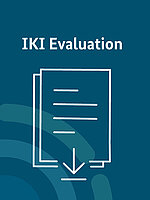
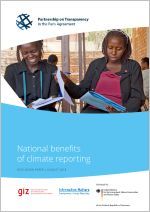

![[Translate to English:] Das Projekt "Anpassung an den Klimawandel mit und für Kinder in Südostasien" wird von Plan International Philippinen durchgeführt und arbeitet mit der Barangay Amantillo Farmers and Fisherfolk Association (BAFFA) aus Marabut, Samar, zusammen, um biologische Methoden in der Landwirtschaft anzuwenden und indigene Materialien zur Anpassung an den Klimawandel zu nutzen; Foto: PLAN International Philippinen](/legacy/_processed_/e/7/csm_20191108_PHL_Schnitte_Header_310_4e3e0bc283.jpg)
